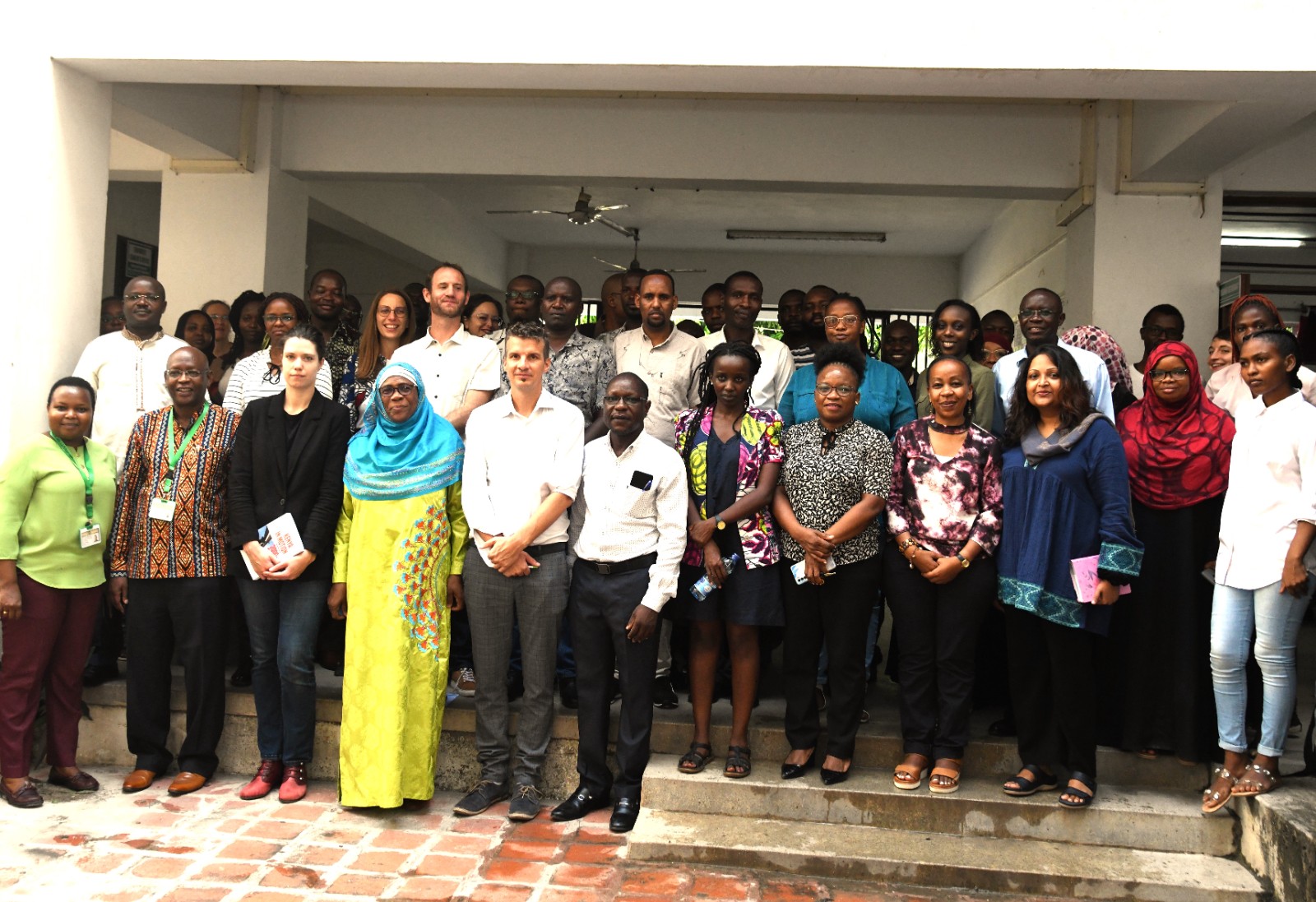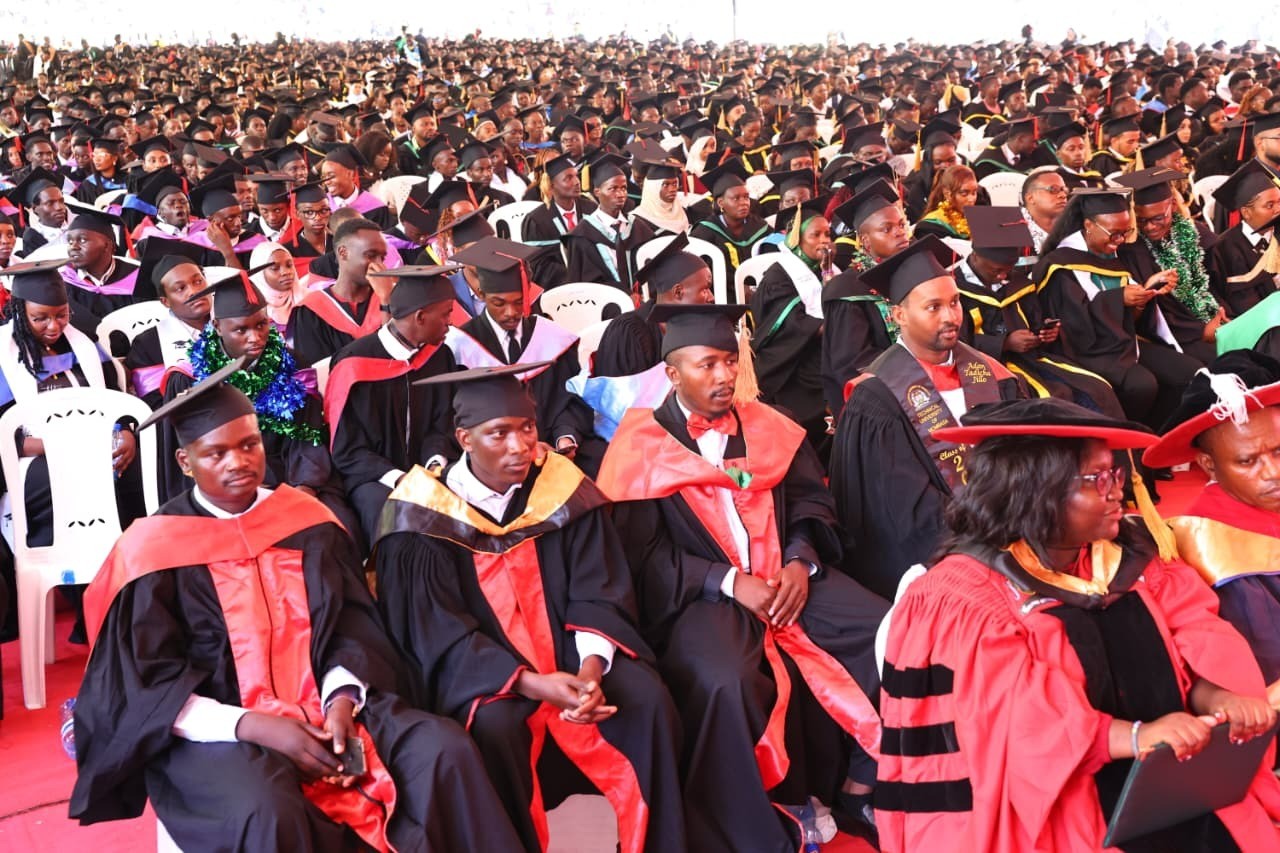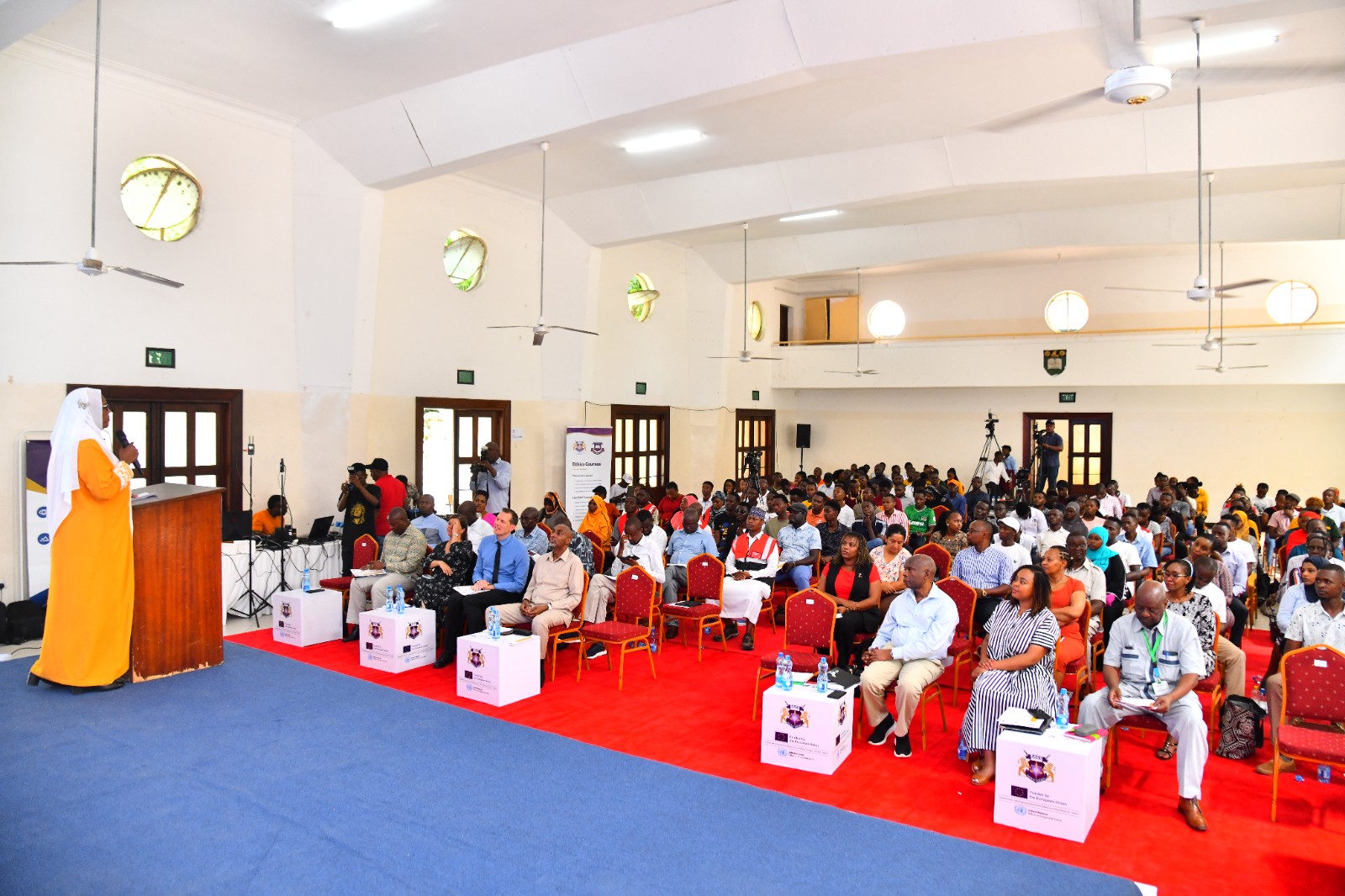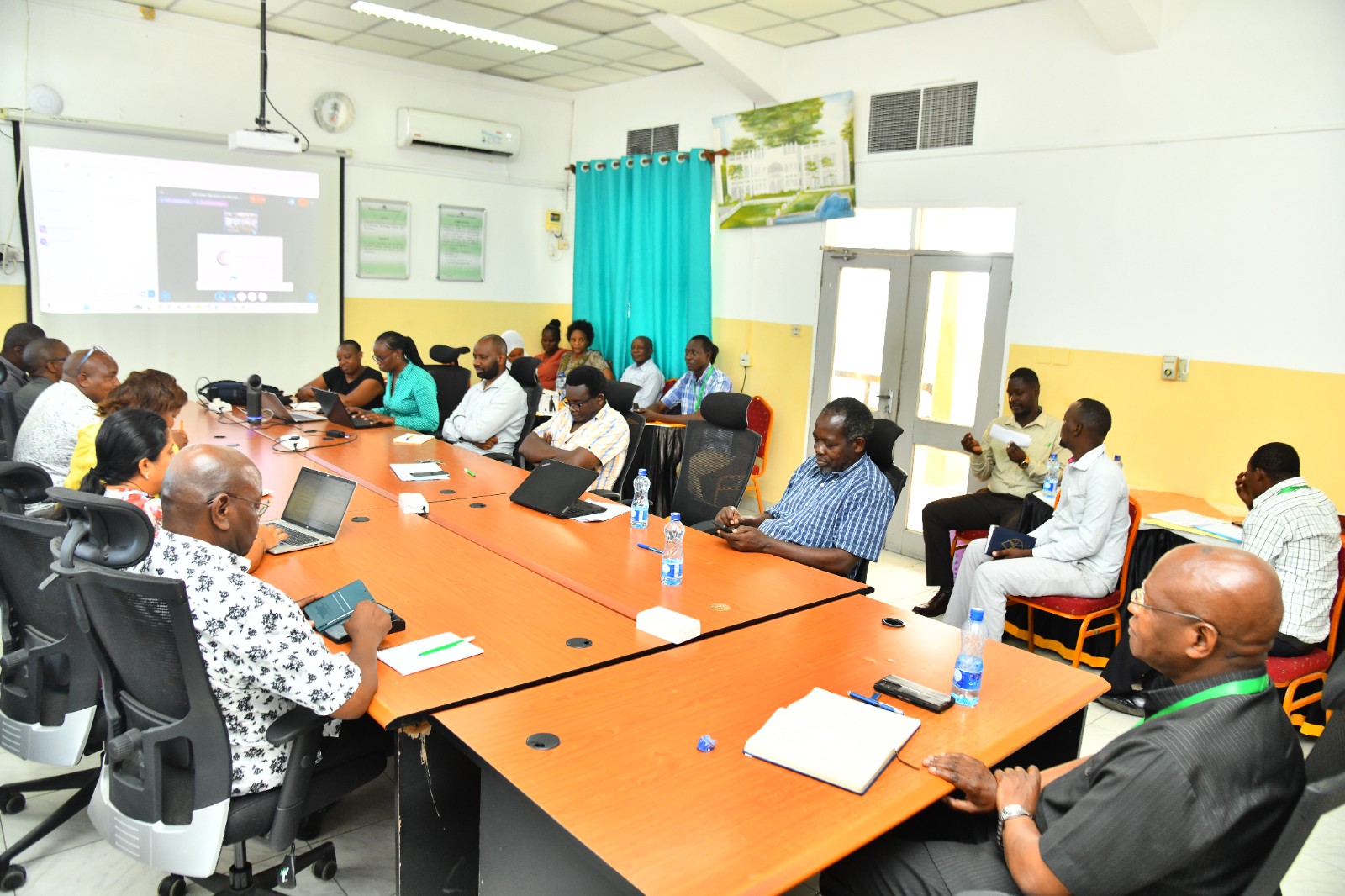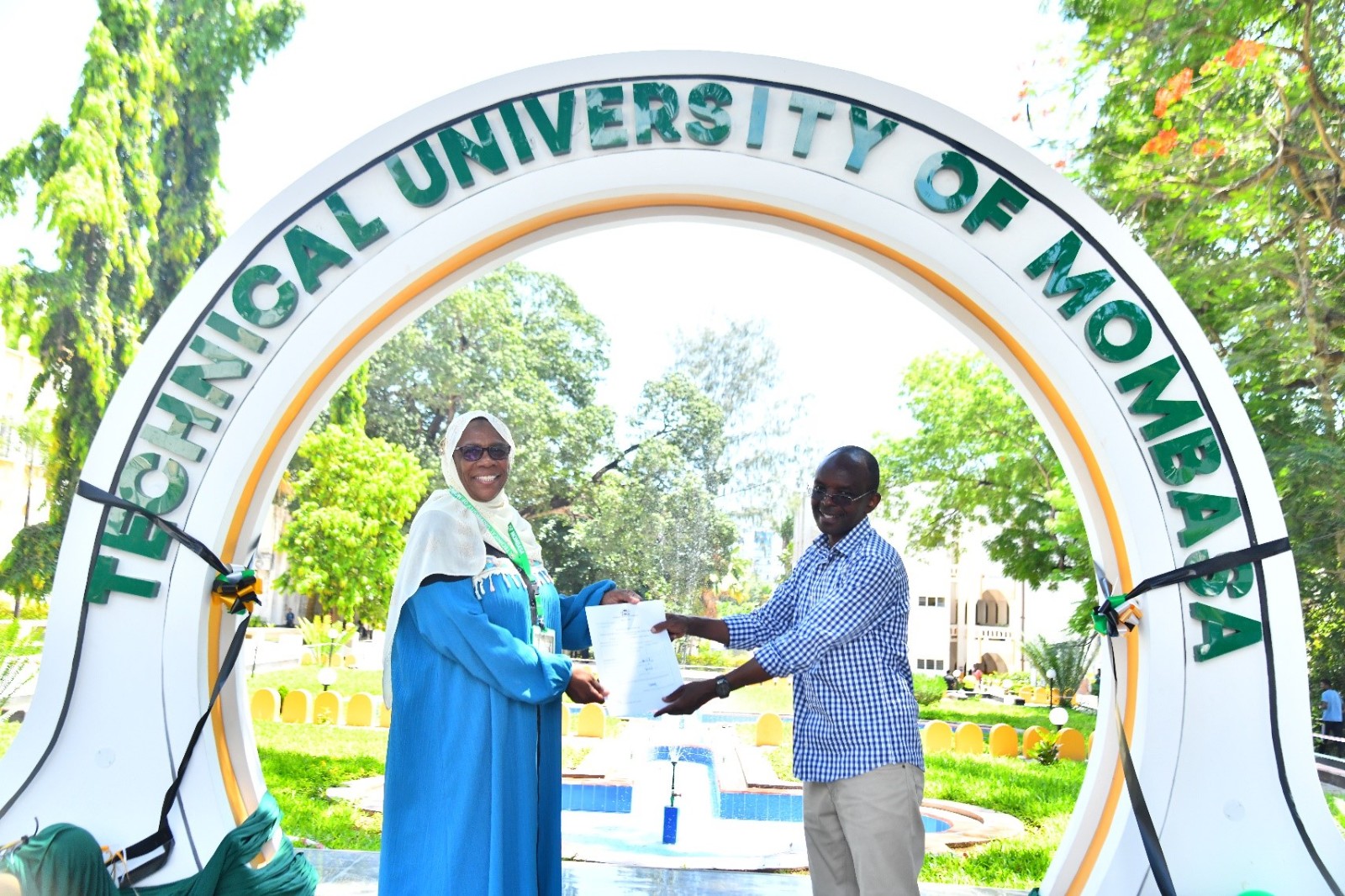The Technical University of Mombasa (TUM) hosted a two-day research workshop in collaboration with the French Institute for Research in Africa (IFRA), the French Embassy to Kenya, and Alliance Française de Mombasa. The workshop, titled "Promoting Academic Skills Development to Boost Employability in Kenya (ProAc)," aimed to equip postgraduate students with the necessary skills and knowledge to successfully complete their research projects and enhance their employability.
Thirty postgraduate students from more than seven universities in Kenya participated in the workshop, which featured keynote speakers from TUM, IFRA, and the French Embassy. Professor Laila Abubakar, the TUM Vice-Chancellor, highlighted the importance of workshops like ProAc in supporting postgraduate students and addressing the challenges they often face.
Professor Clelia Coret, the Director of IFRA Nairobi, introduced the institute's one-year program for Masters and PhD students, designed to train them on theoretical aspects of research, research design, and the publication process. This program provides students with the tools and resources they need to successfully complete their research projects.
Mr Lucas Malcor, Director of Alliance Française de Mombasa, spoke about the organization's partnership with TUM and the French Embassy, which offers valuable programs and opportunities to TUM students. These programs include exchanges to France for English-speaking students to teach English in public schools and filmmaking workshops in partnership with the Coast Filmmakers Association.
Professor Peter Gichangi, the Deputy VC-Academic, Research and Extension (ARE), emphasized four key areas for students to focus on: networking, following the research process from conception to publication, paying attention to detail and sharing knowledge with others.
The Vice-Chancellor, Professor Laila Abubakar, commended and appreciated IFRA for such important workshops which offer the necessary support to graduate students in the conceptualization and implementation of research projects that are relevant and beneficial to Kenyan society. Many graduate students stagnate in the research phase of their studies, and such a platform will provide the students with an opportunity to network, exchange ideas and learn from each other's mistakes and realizations during the sessions and discussions.
"This inter-university collaboration with the support from IFRA will definitely help to improve the methods and systems of epistemological positioning in universities, enabling the building of critical minds while making it more actual for students to construct scientific knowledge and giving them the means of popularizing their research output," She added.
A core point echoed by some of the key speakers is the importance of verifying the journals before applying for publication. Many graduate students tend to fall into the trap of predatory journals. Professor Laila mentioned that the TUM librarians are ready to guide the students on authentic platforms and high-impact journals for publication.
The workshop included enlightening panels and discussions covering topics such as academic journeys, concepts and theories, data gathering and analysis, and challenges faced by students. Students also had the opportunity to present their own publications and research projects, fostering interaction and exchange of ideas.
Mr. Wilson Ndenyele, a PhD student at TUM, presented his publication "Large Scale Land Investments in the Tana River County of Kenya- The Land Policies and Sharing of Benefits" during the workshop. His presentation provided a valuable example of how students can apply the skills learned in the workshop to their own research.
The ProAc workshop was a resounding success, equipping students with the tools and strategies they need to succeed in their academic careers and enhance their future employability. The collaboration between TUM, IFRA, and the French Embassy demonstrates a commitment to supporting postgraduate students and promoting research excellence in Kenya.

